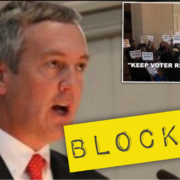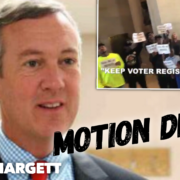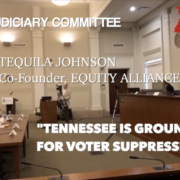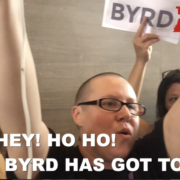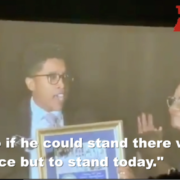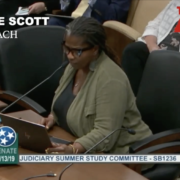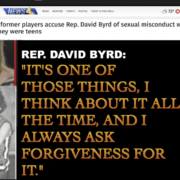A federal judge today said a lawsuit from the League of Women Voters, the American Muslim Advisory Council, Mid-South Peace and Justice Center, Rock the Vote, Memphis Central Labor Council, and Headcount challenging Secretary of State Tre Hargett’s new voter registration criminalization bill – which passed this past session despite outcries from protestors about the constitutionality – is allowed to proceed, striking down Hargett’s motion to dismiss the suit.
The bill came on the heels of the Tennessee Black Voter Project registering over 90,000 voters in 2018, a fact Hargett insisted had no bearing on his decision to push it through. A likely story.
U.S. District Judge Aleta Trauger expressed much skepticism of Hargett’s bill in the decision, essentially pointing to all the things those who spoke out against the bill warned about during discussion of the bill in the legislative session, including the chilling effect it would have on voter registration efforts.
As Judge Trauger says:
“Restricting voter registration drives in order to try to preserve election commission resources is like poisoning the soil in order to have an easier harvest.”
She wondered about some key elements of the bill, for instance why people who are getting paid to registered voters should be subject to requirements those working for free would not be subject to:
“The Act’s two-tiered system both lack justification in its own right and undermines any claim that its provisions are truly necessary.”
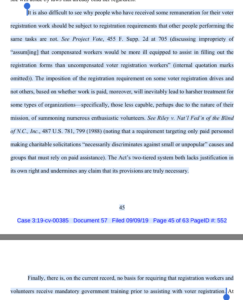
Judge Trauger also says there is “no basis for requiring registration workers and volunteers mandatory government training.”
She went on to talk about the punishments leveled by the bill against registration workers, saying that it “punishes a person for doing too much of something it requires them to do” by essentially requiring them to turn in forms even if they’re incomplete – something many, including Senator Jeff Yarbro, pointed out during committee.
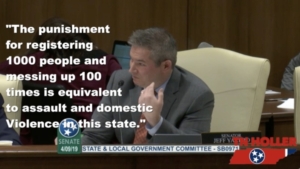
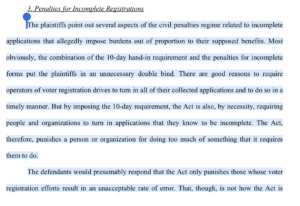
Judge Trauger notes that the punishment for turning incomplete forms is not levied on a % basis, but on a total basis of over 100 incomplete forms, which means “the result is The Act holds an organization to an increasingly more onerous standard the more effective it is at recruiting new voters.”
Which is likely EXACTLY the intention of the bill.
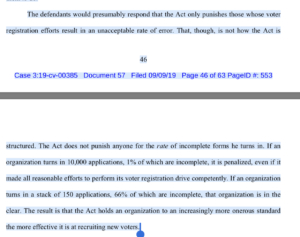
The Bill also imposes an additional penalty in each county where the violation occurred, which Judge Trauger pointed out is especially onerous and flies in the face of the interest of the state in actually registering voters.
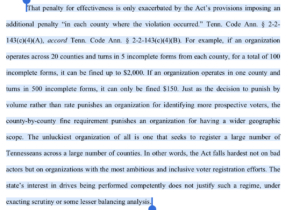
That assumes the state is actually trying to register MORE voters, but more and more it seems Tennessee is perfectly fine being at the very bottom in voter turnout and voter registration.
Judge Trauger then points out how vulnerable these voter registrations are financially, since they are not backed by large and wealthy institutions, and says that the grand total of the penalties amounts to them being “attacked from all sides.”
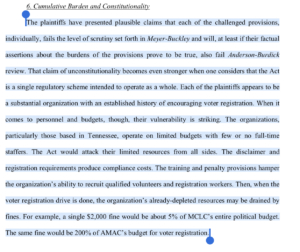
She calls it a “complex and punitive regulatory scheme”, instead suggesting public education rather than an “intrusive prophylactic scheme true bad actors would likely evade regardless.”
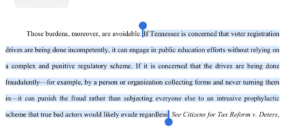
At the end, Judge Trauger uses the exact language used by opponents of the bill to allow the suit to continue, pointing out that it will have a “chilling effect” on voter registration – which we have heard from groups registering voters in Tennessee is happening already.
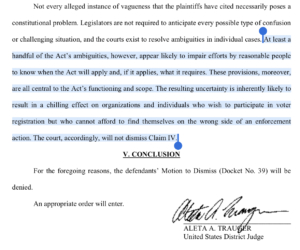
Here’s the ruling in its entirety

